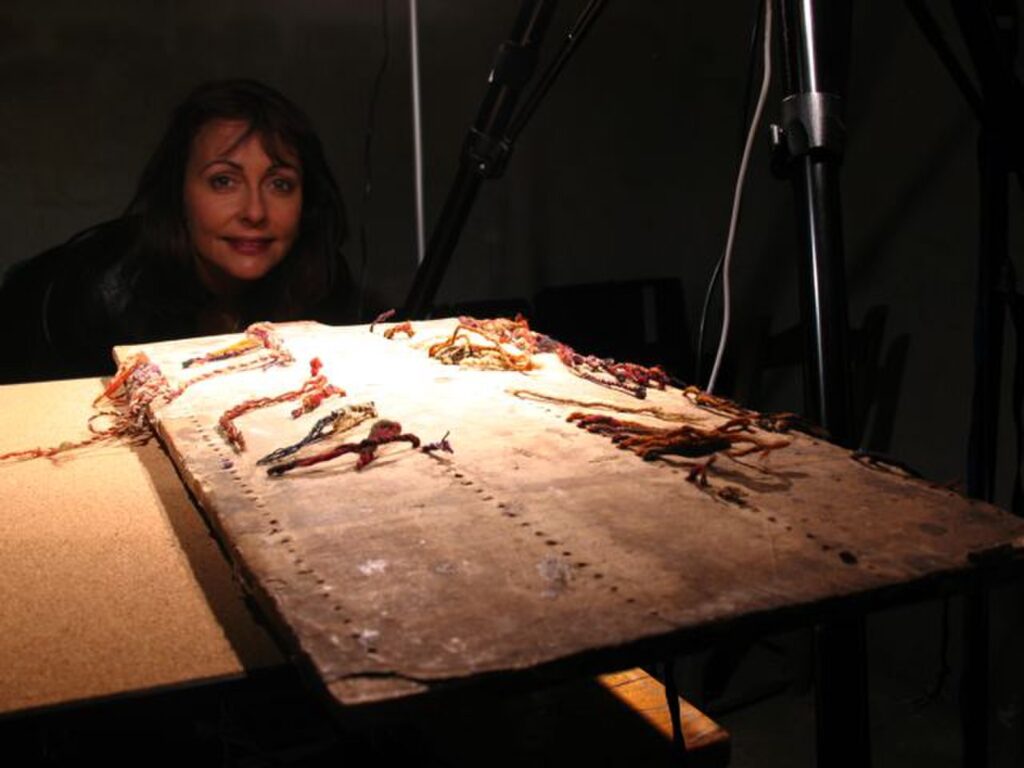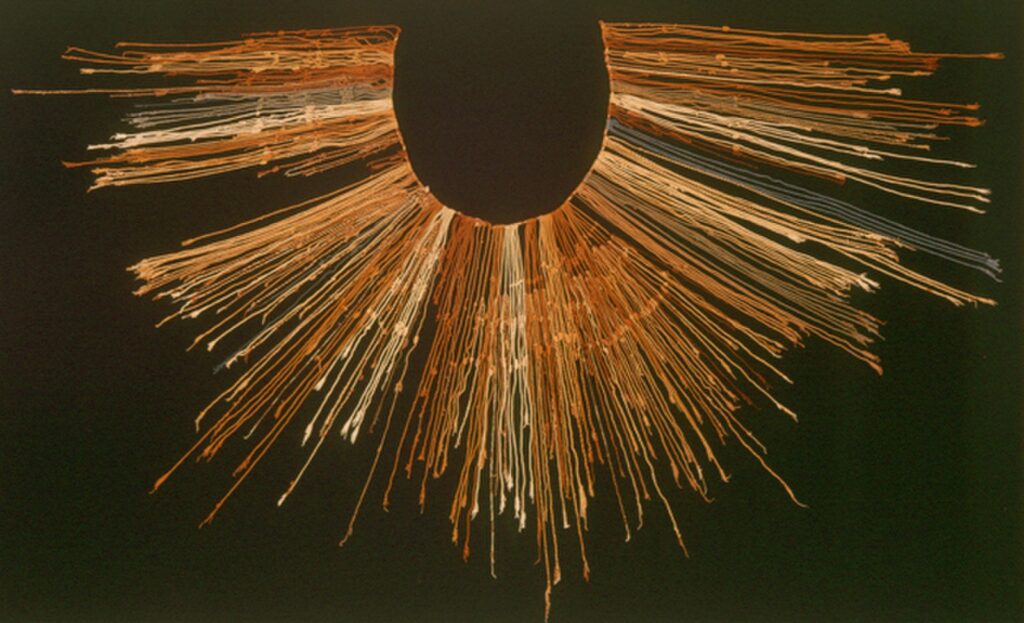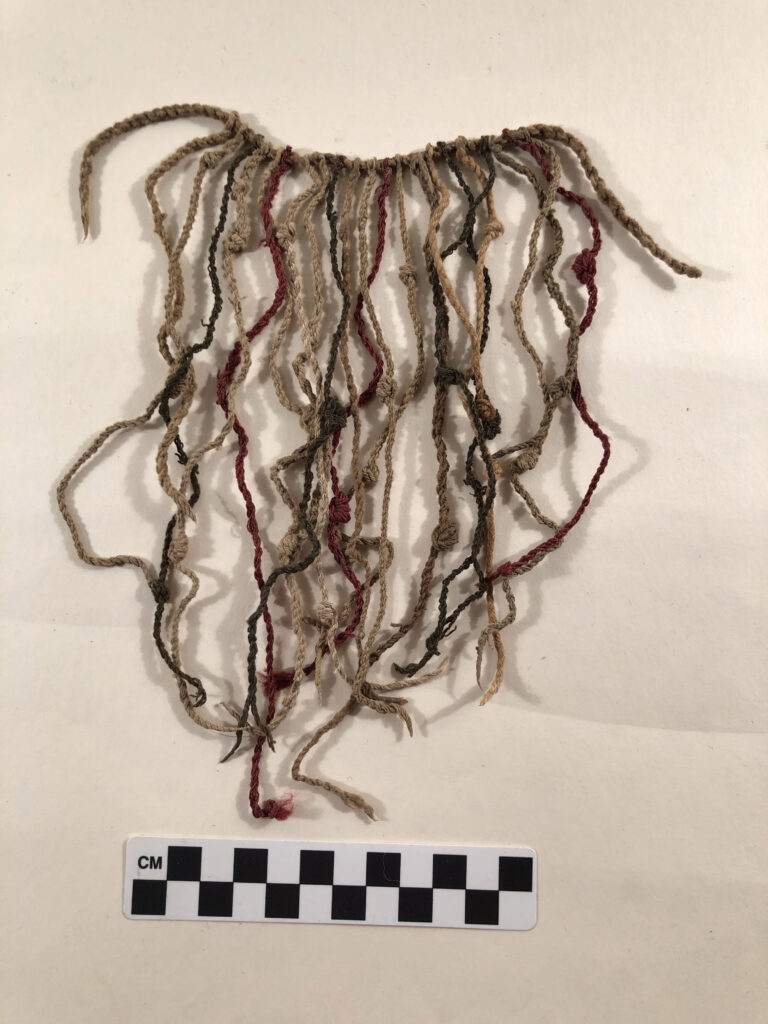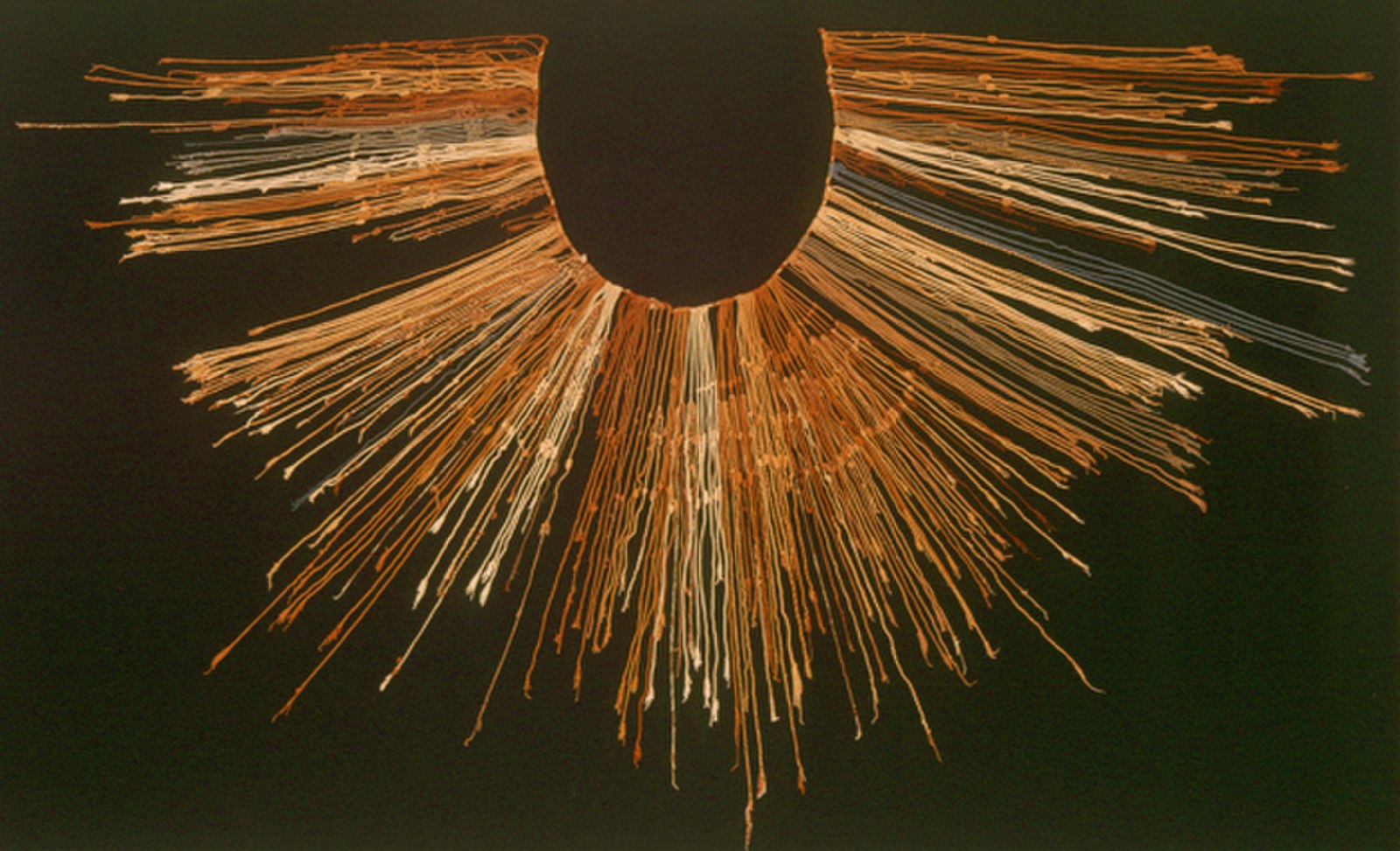Andean peoples and their language, Quechua, suffer from systematic discrimination. According to the World Bank, “millions of Latin Americans – especially those of indigenous descent – who speak a language other than Spanish or Portuguese face linguistic exclusion every day.” This prejudice is acute in Peru, where Quechua is generally perceived as a “primitive” language. It’s supposed lack of a writing system is generally believed to demonstrate its inherent deficiencies. Khipus, the knotted cords used by Quechua speakers for over a millennium to record information, are frequently considered inferior and incapable of recording complex thought. Although some khipus survive today in remote villages, their preservation is at risk.

Dr Sabine Hyland’s past and ongoing research focuses on khipus and other forms of writing in the Peruvian Andes, and has helped the process of overturning reductive perceptions of traditional Andean cultures. Her advances in deciphering khipus, based on fieldwork among Andean peoples who retain khipu traditions, have demonstrated that khipus are a sophisticated and complex form of writing. Hyland’s expertise has been applied to a vast array of beneficial uses. Among many others, she has helped to repatriate stolen khipus, worked to obtain UNESCO world heritage recognition for a khipu in the Central Andes, and analysed an endangered archive of colonial manuscripts in the Peruvian highlands.
Bias against indigenous Peruvians and their intellectual achievements extends to Europe and the United States, where indigenous knowledge has been ignored in school curricula, even as other aspects of indigenous culture may be taught. As Battiste and Youngblood attest, “curricula are the organized portion of education that has been the silencing tool of Western education of all the ‘others’.” The failure to acknowledge indigenous intellectual achievements – which include the development of writing systems – often contributes to prejudice against indigenous peoples and their languages.

One vital factor in rectifying this bias is better representation of Andean culture in education, and Hyland’s work is proving influential in this regard. Her discoveries about khipus are explicitly described in a forthcoming history textbook for Year 7 by Hodder Education, one of the largest school publishers in the UK, which already has been adopted in school districts throughout Britain. Tens of thousands of 11-year-olds in the UK will learn about the sophistication of Andean khipus as part of their school curricula. When instructors teach the chapter on the Incas, they will have the option to show a 10-minute video of Hyland discussing her khipu research. One of the textbook editors wrote, “I know that students are going to find this topic really inspiring. It was particularly great to see you holding and talking about the khipu.”

Alongside promotion of Peruvian Andean culture, Hyland also works to preserve its existing examples. This helps to ensure that members of the public can be inspired by them directly, and that future researchers can follow her in extracting valuable and far-reaching lessons from them. In 2020 and 2021 Hyland assisted special agents from the US Department of Homeland Security in identifying and returning ancient khipus that had been looted as part of an illegal antiquities smuggling ring. By restoring the khipus to their rightful home, Hyland helped to preserve the links between contemporary Peruvians and their ancestors. These links constitute both a vital part of national identity and a rich seam of information from which researchers can better understand the intellectual achievements of past generations.
In 2022, a “khipu board” in the village of Mangas, Peru, received UNESCO world heritage status as part of the Peruvian patrimony. This recognition was largely based on research published by Hyland about this specific khipu board. The villagers in Mangas are currently constructing a small museum about the khipu, which they hope will attract tourists to their community and drive further engagement with their heritage. Hyland has been invited by the people of Mangas to return to their village and help them set up the museum, directly employing her expertise in a celebration of local heritage.
Hyland is also a co-investigator on the Ancash Community Archive Development Project, funded by the British Library Endangered Archives program. Last year, funds from the British Library enabled project members to digitise over 2000 pages of rare colonial manuscripts held by the indigenous highland community of Pamparomas in Peru. This unique archive, which the community treasures as its “magna carta”, was endangered, and has in fact disappeared since the digitisation was carried out. It contains valuable data about the region’s population, environment, and agriculture which can provide insights into the environmental history of the valley. Several years ago, the community asked for the project’s help in preserving this vital aspect of their cultural heritage. The new high-quality record of the archive, while never a replacement of the original, provides invaluable security against the loss of an irreplaceable artefact.

